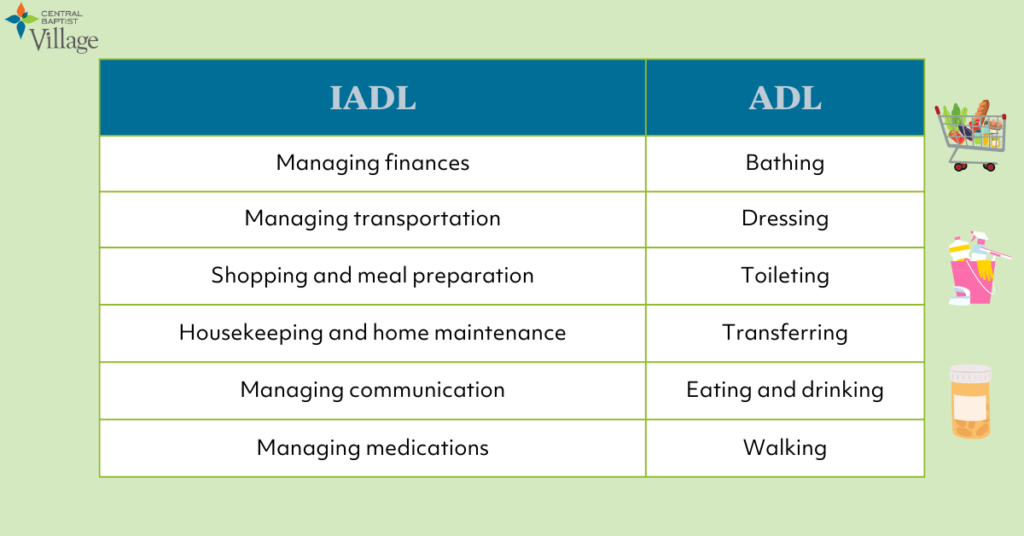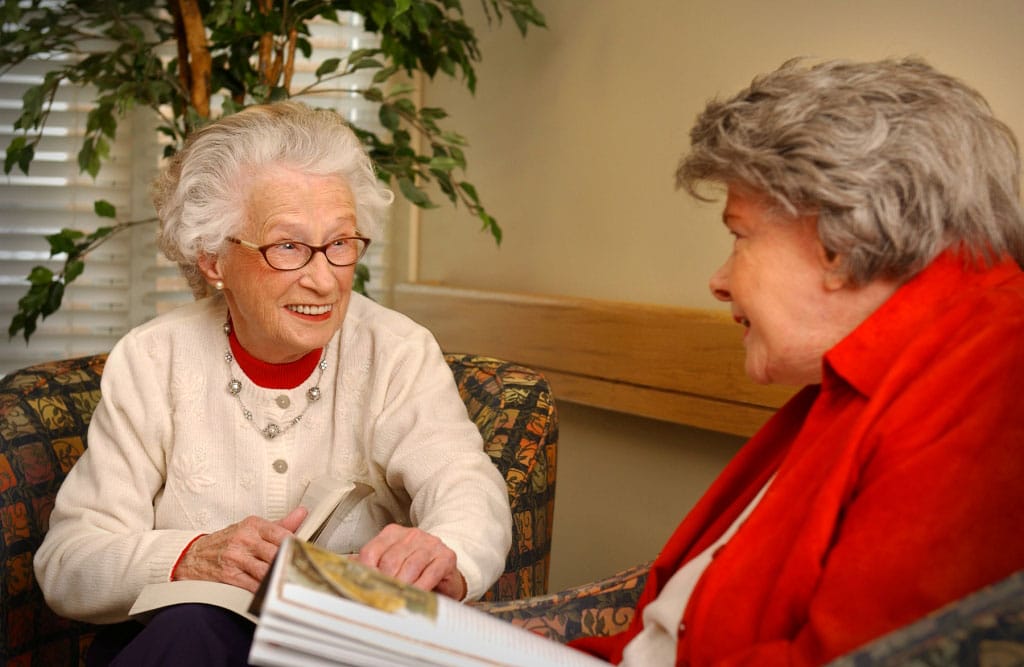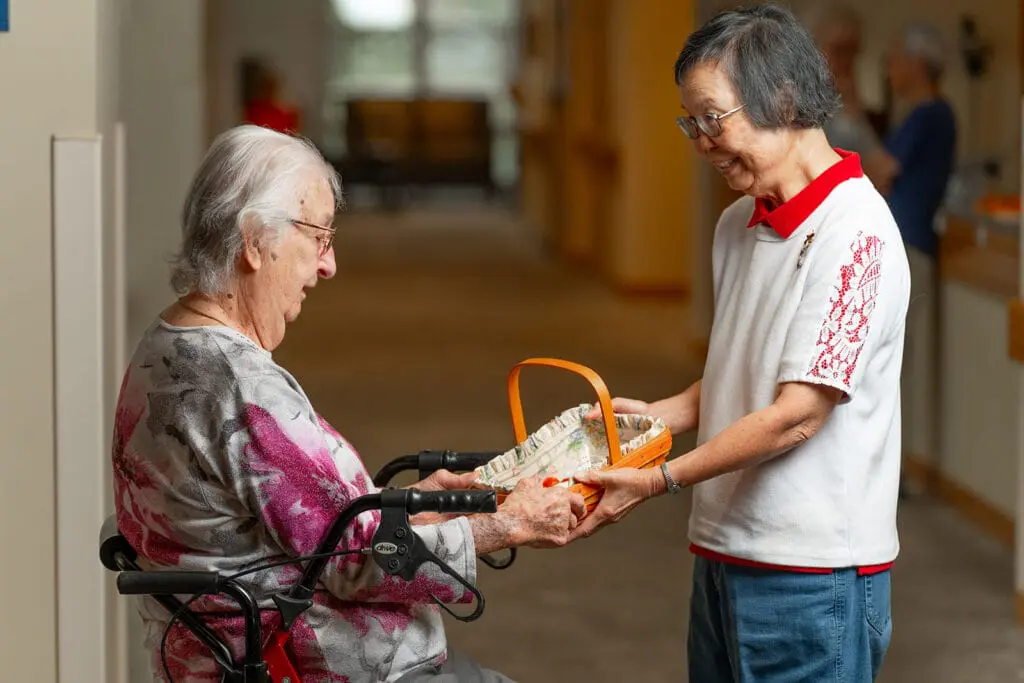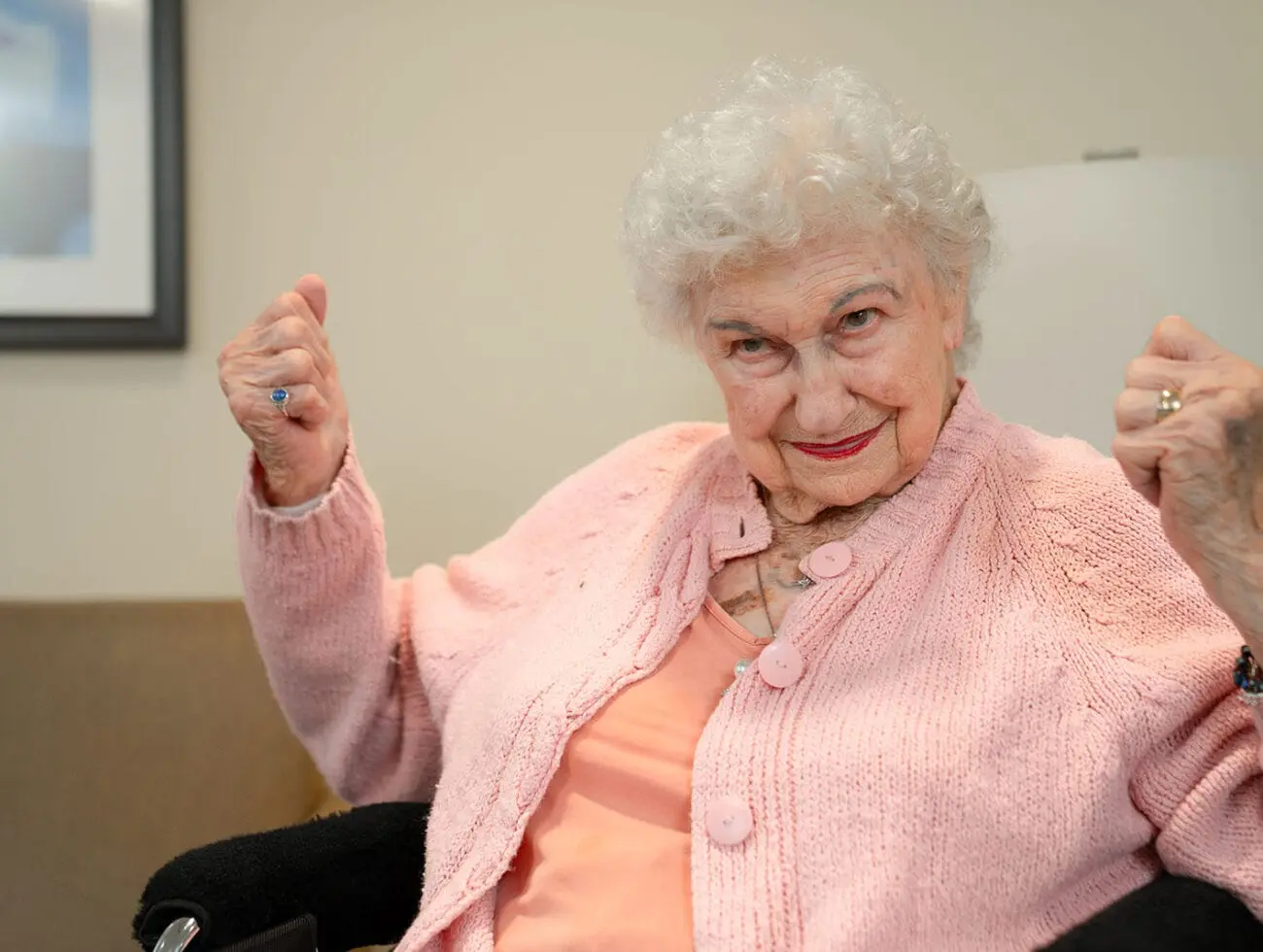Did you know that most Americans over the age of 65 will need long-term care in their lifetime? As our family members and loved ones age, their needs and abilities may change. It’s natural to wonder how best to support them while respecting their desire for independence.
Two key terms you may encounter on this journey are IADLs and ADLs – instrumental activities of daily living and activities of daily living. Understanding these terms and how they relate to your loved one can empower you to make informed decisions when looking for a community and ensure they receive the right level of care and support.
In this blog post, we’ll delve into the concept of IADLs vs. ADLs and explore their significance, the difference between them, and how they impact daily life.
IADLs: managing life’s details
Instrumental activities of daily living (IADLs) are activities that help us maintain our independence and engage with the world around us. These tasks are often more complex than basic self-care, requiring organizational skills, problem-solving, and interaction with others.
Examples of IADLs include:
Managing finances
This involves a range of tasks, from budgeting and paying bills on time to managing investments and making sound financial decisions. Difficulty with finances can lead to stress and anxiety, making it essential to identify early signs of struggle and offer appropriate support.
Transportation
Whether it’s driving a car, using public transportation, or arranging rides with friends or family, transportation is essential for maintaining social connections, attending appointments, and running errands. Changes in driving ability or access to transportation can significantly impact an individual’s independence and quality of life.
Shopping and meal preparation
The ability to shop for groceries, plan meals, and prepare nutritious food is essential for maintaining a healthy and fulfilling lifestyle. This IADL also involves the ability to dispose of expired or rotten food, as a fridge filled with moldy or expired foods is a common and significant indicator of potential challenges in managing these tasks.
Housekeeping and home maintenance
Maintaining a clean and safe living environment involves a variety of tasks, from laundry and vacuuming to minor repairs and yard work. These activities can become more challenging with age or health issues, and when left unaddressed, even small household problems can quickly turn into much larger and more expensive issues.
Communication
Staying connected with loved ones, accessing information, and managing daily life often rely on communication skills. This can involve using the phone, email, text messaging, or social media. Difficulty with communication can lead to isolation and loneliness, making it crucial to identify and address any challenges early on.
Managing medications
Taking medications as prescribed is essential for managing chronic conditions and maintaining health. This can involve remembering when to take medications, understanding potential side effects, and refilling prescriptions. Support services can help individuals manage their medications safely and effectively.

ADLs: taking care of ourselves
Activities of daily living (ADLs) are the fundamental tasks we need to perform to take care of our physical selves and maintain our health. These activities are often personal in nature and may require assistance as we age or face health challenges.
Examples of ADLs include:
Bathing and showering
Maintaining personal hygiene is not just about cleanliness; it’s also about dignity and self-esteem. This includes tasks like getting in and out of the shower or tub safely, washing and drying oneself, brushing teeth, and managing hair or skin care.
Dressing
Choosing appropriate clothing, putting it on, and fastening buttons or zippers might seem simple, but it requires dexterity, balance, and coordination. Difficulty with dressing can be a sign of underlying issues and might necessitate adaptive clothing or assistance.
Toileting
This involves using the bathroom independently, maintaining continence (control of bladder and bowel functions), and managing personal hygiene related to toileting. Changes in toileting habits can indicate various health conditions.
Transferring
This refers to the ability to move safely from one position to another, such as getting out of bed, moving to and from a chair, or getting in and out of the shower. Difficulty with transferring can increase the risk of falls and injuries.
Eating and drinking
While it might seem basic, eating and drinking independently involve a range of skills, from chewing and swallowing to using utensils and cups. Changes in appetite or difficulty eating can signal underlying health concerns.

The significance of IADLs and ADLs: assessing functional abilities
IADLs and ADLs serve as valuable indicators of an individual’s functional abilities and overall well-being. As we age, changes in our ability to perform these tasks can provide crucial insights into our health and the potential need for support.
Think of them as a road map for understanding how someone is managing daily life. When changes occur in these activities, it’s not necessarily a cause for alarm but an opportunity to reassess and adapt.
These changes might be subtle at first – difficulty managing finances, trouble keeping up with housework, or changes in personal hygiene. It’s important to remember that people are often private and protective of their changing abilities. Family members may need to be observant and ask questions to truly understand their loved one’s needs.
By addressing these changes early on, you can help your loved one maintain their independence and quality of life. This proactive approach allows for planning and ensures that they receive the support they need to thrive.

Embracing the journey: your loved one’s path forward
At Central Baptist Village, our Assisted Living community can support independence by empowering individuals to continue engaging in the activities they love.
Here, we’re committed to providing a comprehensive range of services and amenities to meet the diverse needs of our residents in Assisted Living. We understand that each individual’s journey is unique, and we strive to offer personalized solutions that promote well-being and independence.
Our services include:
- Personalized care plans: We work with each resident to develop a customized plan that addresses their specific needs and preferences.
- Three nutritious and well-balanced meals each day: Our dining team ensures residents enjoy delicious, balanced meals tailored to their dietary needs.
- Medication management: Our trained staff can help residents manage their medications safely and effectively.
- Transportation assistance: We provide transportation to appointments, errands, and social outings.
- Weekly housekeeping and laundry services: Our team takes care of the chores so residents can focus on the things they enjoy.
- Social and recreational programs: We offer a wide range of engaging activities that promote social interaction, lifelong learning, and fun.
- Fitness and wellness programs: Our fitness center and wellness programs help residents stay active and healthy.
- Spiritual programs: We offer a variety of spiritual programs and activities to support residents’ spiritual well-being.
Our amenities include:
- Restaurant-style dining: Our dining program features delicious and nutritious meals prepared by our talented chefs.
- Beauty salon and barbershop: Our on-site salon and barbershop offer a variety of services to help residents look and feel their best.
- Onsite chapel: Our chapel provides a space for reflection, worship, and spiritual growth.
- Library: Our library provides plenty of resources to help you pursue your passion for lifelong learning.
- Community Lounges: Our lounges offer spaces for relaxation, entertainment, and staying connected with loved ones.
- Free Wi-Fi: We provide complimentary high-speed internet access throughout our community.
- Raised container gardens: Our gardens offer opportunities for residents to enjoy nature, connect with the earth, and express their creativity.
- Outdoor spaces: Our beautifully landscaped grounds include courtyard patios, arbors, walking paths, a pond, and a gazebo, and offer peaceful spaces for relaxing and recharging.
At Central Baptist Village, we’re more than just a senior living community – we’re a home for life. We’re here to support your loved one through every stage of their journey, from Assisted Living and Memory Care to our award-winning Skilled Nursing services.
Contact us online or call 708-515-4856 to schedule your personalized visit and discover the difference our Norridge, IL, Assisted Living community can make in your loved one’s life.

